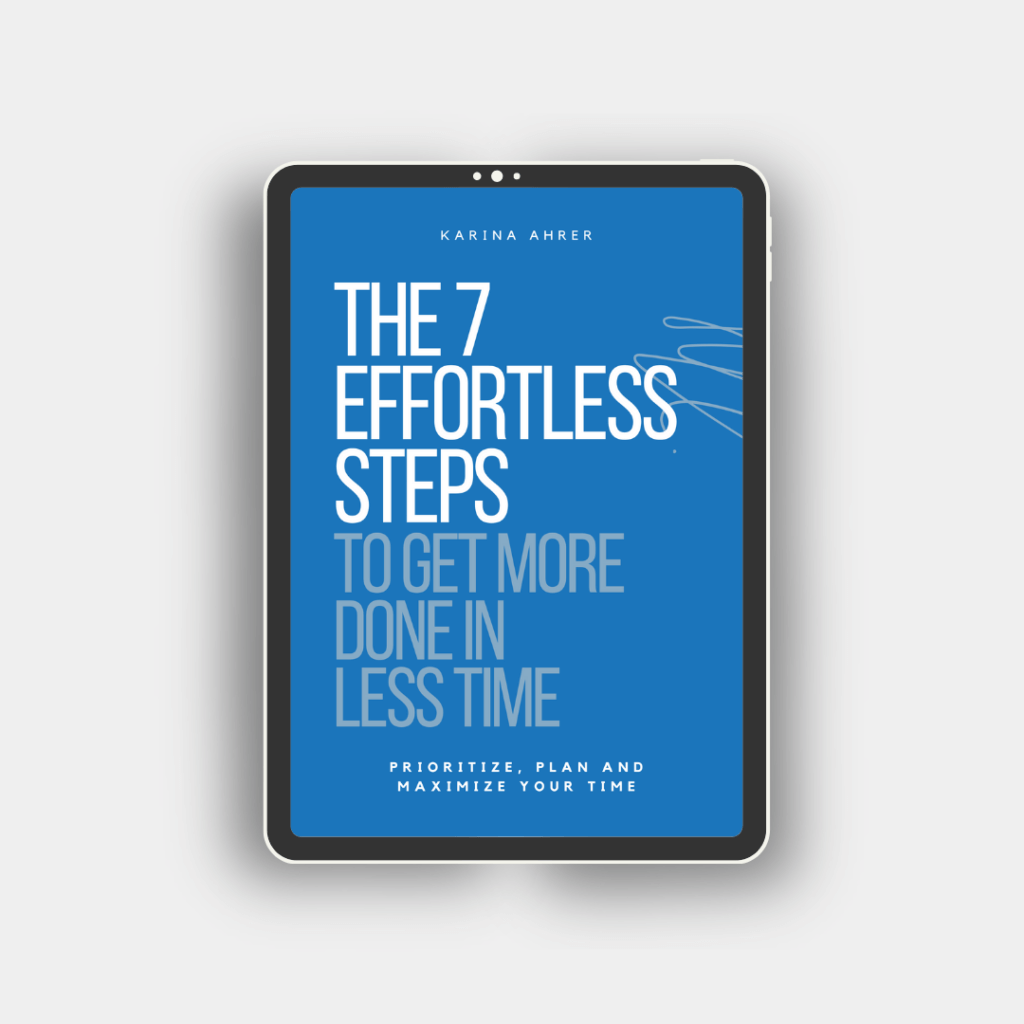Embracing your full potential requires confronting your self-doubts head-on
Having self-doubts is a specialty of introverts. Not because we are quiet, but because we get told that we should be louder, more open, and fun around people,… We should be extroverted.
And as overthinkers we overthink everything:
- How should I behave?
- What should I look like?
- Do people like me?
- Did I do something wrong?
- Why does this person not like me?
- Do I have to speak up to get success?
- Am I good enough?
- Why can’t I be louder?
Today I want to share with you 5 strategies to overcome self-doubt. The fear of trying something new and doubting yourself will never go away.
Because it’s a survival mechanism. Your brain wants to keep you safe and alive in your comfort zone.
Every time you think about doing something new you get self-doubts because of uncertainty. You don’t know what will happen, and your brain doesn’t like that.
This also means that everyone has it. You are not the only one.
Every successful person you see on social media had and still has self-doubts and fears. They are not leaving.
Instead of fighting those feelings, we need to get used to them and do the things anyway.
As the president of my student organization, I had a lot of moments when I doubted myself, and I had to overcome the fear of:
- being the head of the general assembly
- presenting in front of the head of my university
And I did it by just doing it, and it improved my skill of overcoming fear.
Before we get into the 5 strategies we have to understand why we want to overcome our self-doubts: Because a safe life isn’t a satisfying life.
Your brain wants to keep you safe inside eating candy on the couch, but this won’t lead to a fulfilling life.
We think we want to: just chill on the beach with a cocktail and do nothing.
After a few months you will get bored trust me.
I had a few months break after my Bachelor’s degree, and having nothing to do will get you depressed. Without challenges or something meaningful to do you will get bored and sick.
We don’t want that. What we want is a fulfilling life. This means something different for everyone, but one thing is for sure we need challenges and overcoming self-doubt to get there.
Here are the 5 strategies:
1) Mute Your Brain and Just Do It
When your brain wants to protect you it will lead you away from the situation:
- by reminding you of past failures
- by telling you you are not good enough
- by making you worry
Those are self-doubts and worries in your brain distracting you from the actual problem.
This is not a situation of living and dying anymore, but your brain doesn’t know it.
The self-doubts get in the way, and you will not apply for that job, you will not ask for the phone number or you will not start that business.
Your brain succeeded in keeping you safe.
But that doesn’t mean you are happy or fulfilled.
The solution: whenever self-doubts or worries come your way you do it anyway!
Your fear/brain is not leaving your life, you have to put it in the passenger seat and say: “This is my life, and I’m not gonna die by doing the thing I’m afraid of”
When I presented the cause of the organization in front of the head of my university, I was afraid, nervous, and full of self-doubts. But I had to do it, and I had to overcome the feelings.
What happened: I didn’t die 😉
I actually got compliments for my presentation, and the next year was easier.
I put fear in the passenger seat and I drove the car, instead of my feelings.
Just do it anyway!
2) Meditate
Self-doubt is an emotional response from your brain.
Meditation can help you reduce the impact of emotions. You are improving the control of them.
In a calm environment, you are sitting down to relax, to let go of thoughts and emotions, and just be.
In the beginning, I struggled with meditation because my thoughts were spinning.
If you struggle with that too: accept the thoughts, focus on your breath, start slowly with 5 minutes daily, and then increase the time.
I love meditating in the morning because it’s a relaxing way to start the day. And especially as an introvert in such a loud world meditating is a great way to gain energy to be prepared.
2) Affirmations and Positivity
Instead of giving the brain the power of your thoughts, write all the negative things in your journal.
Write down everything. You will zoom out of your brain, and you will see how negative and untrue some thoughts are. Those are not you.
Instead of giving the power of negative thoughts to your brain, you actively see them as they are and change them to a positive version.
- “I can’t” -> “I can”
- “I won’t” -> “I will”
- “I’m not good enough” -> “I will become good enough”
- “I’m not <x>” -> “I’m not <x> yet”
A part of my morning routine is telling myself positive affirmations in front of the mirror.
This sets a positive mood every day.
And for the best result:
- you also have to believe them
- don’t use negative words like “not”
4) Adopt a Growth Mindset
Your skills aren’t fixed.
You can learn, improve, and succeed.
Your whole life is a path of improvement. If not, you let entropy take over and your skills will deteriorate.
Your brain wants to protect you from failures and uncertainty. But if you embrace a growth mindset you want to fail and learn something new because you know you will improve.
You know you can get better at something and that failure doesn’t say anything about your worth as a person.
If you established the growth mindset you want to go out of your comfort zone and learn something new.
When self-doubts arise, you know you will do it anyway because it means this will improve your skills a lot.
5) Practice and Record Your Wins
With practice, you will get better.
Every time you put your fear in the passenger seat and do it anyway: you will improve your skill of fearlessness.
And then: write down every win.
Your brain is programmed to remember negative situations more than positive ones. This is another survival mechanism: it wants to keep you from going there again.
But this also means it’s forgetting the wins and achievements.
What are we gonna do about it?
We are writing down and saving every victory and win for future situations of self-doubt.
Whenever you have a bad day and can’t find any positive thoughts: go back to that list and remind yourself of them!
You’ve already achieved so much. It doesn’t make sense to have self-doubt because you’ve already done so many great things.
So write down your wins. Record your victories. It doesn’t matter how small they are — do it! Remind yourself of them!
Conclusion
Self-doubt and fear will always be part of your life.
Even people at the top of their game, like Michael Jordan, Beyoncé, and Michelle Obama experience self-doubt. Just because you’re successful doesn’t mean you don’t fear losing your success.
But: They accept their self-doubts and put them in the passenger seat.
You are now prepared for those negative thoughts coming your way, and you know what to do.
Get My Strategies For More Productivity
Get your free copy of my 7 tips

Get daily insights, motivation, and inspiration:
If you are as addicted as I am to reading books, then check out my list of favorite books!

